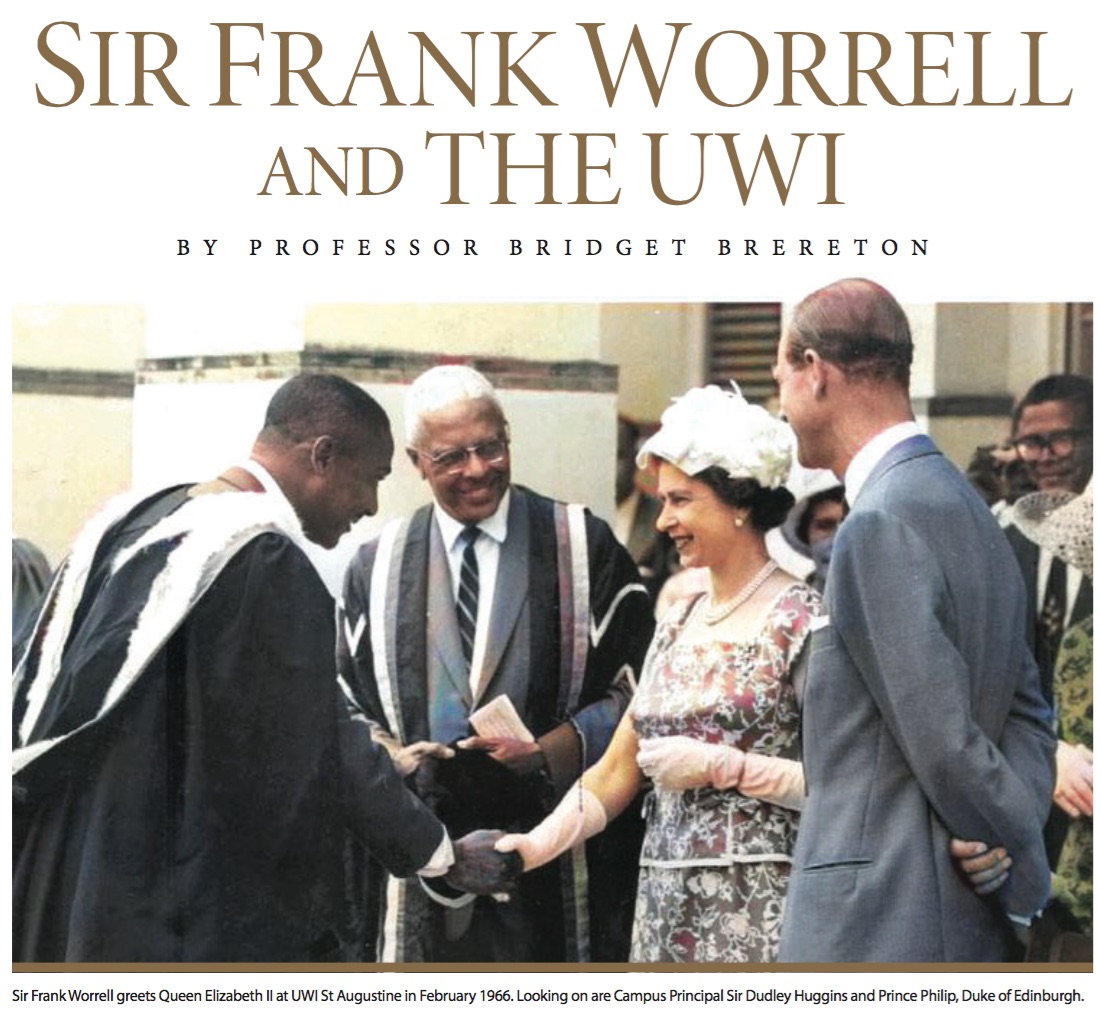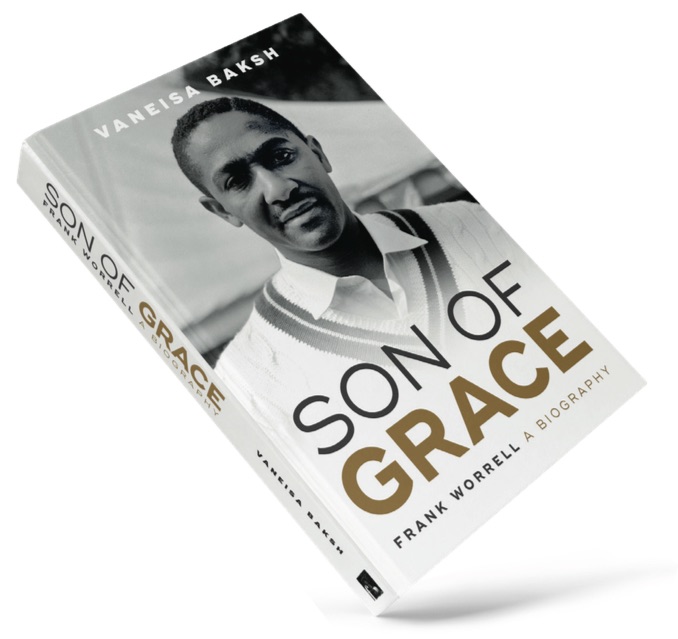
This year is the centennial of the birth of Sir Frank Worrell (1924-1967), so it is entirely appropriate that it also sees the appearance of the long awaited biography by T&T’s own Vaneisa Baksh, veteran writer, journalist, columnist and former editor of UWI TODAY. It’s cleverly titled Son of Grace – literally, his mother’s name was Grace; metaphorically, his cricket was famous for style and grace – and it is a thoroughly researched and very readable book of 326 pages.

Son of Grace is not the first biography of Worrell, but as an earlier English reviewer writes, “the essence of the man remained elusive”. Baksh’s book is about Worrell the enigmatic and complex man rather than Worrell the great cricketer and Test captain, though naturally there is plenty of cricket too. Her aim was to probe the character of an important 20th century West Indian and to tell a well-rounded story of his all too brief life. She succeeds brilliantly.
This biography tells the story of Worrell’s whole life, but I was especially interested in its last few chapters which detail his multi-faceted involvement with the regional university in the 1960s.
In the 1950s, living in England, Worrell came to know Arthur Lewis, then Professor of Economics at Manchester University. Baksh shows that it was on Lewis’s advice that Worrell signed up to do a BA degree there in 1956. Despite playing as a professional for an English club and taking part in Test matches, Worrell managed to earn his degree in 1959. He was offered the captaincy of the West Indies twice, for tours in 1957/58 and 1958/59, but declined because of his studies.
Clearly, Worrell was preparing himself for his post-cricket career. The famous Australian tour of 1960/61 might be seen as a triumphant climax to his cricketing life. By 1961, with his BA in hand, aged 37, the still fairly new regional university must have seemed like an obvious fit—and Lewis was now the Principal of the University College of the West Indies at Mona, Jamaica, and would become the first Vice-Chancellor of The UWI in 1962.
In his all too brief time at St Augustine—just over a year—Worrell was instrumental in creating the campus playing field, fittingly named for him. It was officially opened just one week before his death in March 1967.
And so, Worrell came to Mona in September 1961 as Warden of Irvine Hall, the only co-ed residence, as Baksh shows in chapter 25. In addition, he organised and mentored sports on the campus, acting as the de facto coach of the Mona cricket team, and also encouraging other sporting activities. Baksh effectively uses the memories of people who played on the cricket team and who frequented gatherings at the Irvine Hall warden’s residence during these years, including Baldwin Mootoo, who decades later would become Deputy Principal at St Augustine and then Pro Vice-Chancellor of Research. They told her how he mentored and encouraged young people in life skills as well as in cricket and other sports.
In his three years at Mona, and despite frequent absences for Test matches and for travel up and down the Caribbean organising and encouraging cricket in the islands, Worrell made his mark. He redesigned the cricket field at the “Mona Bowl” and advised on plans for the Students’ Union building (it was brand new when I came to Mona as an undergraduate in 1963).
In 1964, Worrell went to Trinidad on the invitation of Eric Williams’s government, seconded to the Community Development Ministry for one year to advise on its Better Village programme. He also got involved in community coaching with Wes Hall. After this year (about which Baksh was unable to find much information), in August 1965, UWI agreed to second him to St Augustine as Warden of Milner Hall, then the only residence, and as Dean of Students.
In his all too brief time at St Augustine—just over a year—Worrell was instrumental in creating the campus playing field, fittingly named for him. It was officially opened just one week before his death in March 1967. He also advised on the new field and pavilion at Cave Hill in Barbados—thus playing a role on all three of the original campuses at The UWI, as Baksh shows.

Baksh was given access to Worrell’s personal files in The UWI archives, which she uses very effectively in chapters 25 to 29 of her book. Vice-Chancellor Lewis, and then Philip Sherlock who succeeded him, plus Dudley Huggins as St Augustine Principal, were all extremely accommodating with his frequent requests for paid leaves of absence—whether to play in Tests, or to visit the smaller islands to lecture, mentor, and organise cricket, or to cover a Test in England for a British newspaper and the BBC. No doubt they were star-struck with their famous staff member, and saw his work throughout the region and beyond as part of the remit of the regional university and as valuable public relations too.
By the start of 1967, Worrell was dying. It was at Mona that he was diagnosed with leukaemia (by Trinidadian medic and academic Rolf Richards) and he died at the University Hospital there on 13 March 1967, aged 42. A positive tsunami of condolences and tributes poured in to The UWI. Baksh writes that they had to assign a staffer full-time to deal with them. After a state funeral in his native Barbados, he was buried on the Cave Hill campus, where later the other two members of the “Three Ws” (Everton Weekes and Clyde Walcott) would join him.